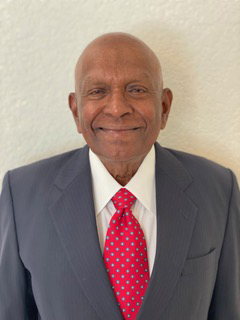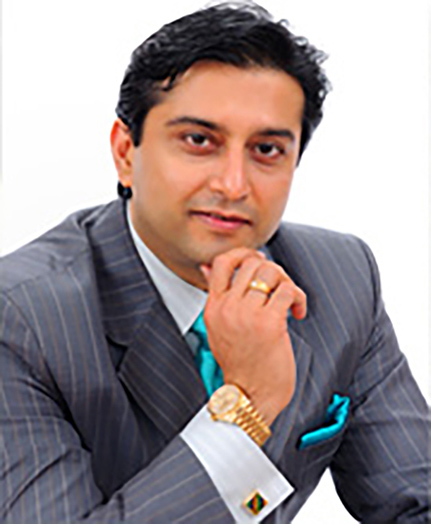
LIFESTYLE MEDICINE

Modern medicine is focused on treatment of diseases by doing tests, procedures or administering medications. But what really matters is the way we live our lives. This is the promise of Lifestyle Medicine — a rapidly growing field that empowers individuals to take control of their health through informed choices in everyday living. Lifestyle Medicine seeks to address the root causes of chronic diseases by modifying our behaviours and environments that contribute to illness.
Lifestyle Medicine is a medical discipline that uses lifestyle interventions as a primary therapeutic tool for the prevention, treatment and reversal of chronic diseases. It has become an approved medical sub speciality with residency programs and board certifications.
Chronic diseases such as cardiovascular disease, diabetes, obesity and certain cancers are now the leading causes of death and disability worldwide. These conditions are driven in large part by lifestyle factors — unhealthy diets, lack of physical activity, chronic stress, poor sleep, and substance abuse. Traditional medical care often addresses the downstream effects, managing symptoms rather than eliminating the causes. Lifestyle Medicine, however, offers the possibility of true healing and prevention.
Studies have shown that up to 80% of heart disease, stroke, and type 2 diabetes, and over one-third of cancers, could be prevented by eliminating risk factors such as tobacco use, unhealthy diet, physical inactivity and excessive alcohol consumption. This staggering statistic highlights the immense potential of Lifestyle Medicine to transform individual and public health.
The core pillars of Lifestyle Medicine typically include:
- A whole-food, plant-predominant diet;
- Regular physical activity;
- Restorative sleep;
- Stress management;
- Avoidance of risky substances;
- Positive social connections.
Nutrition
A cornerstone of Lifestyle Medicine is diet based on whole, minimally processed foods, predominantly plant based. This includes fruits, vegetables, whole grains, legumes, nuts and seeds. Such diets are rich in fibre, antioxidants, vitamins and minerals, while being low in saturated fats and added sugars. Research consistently shows that plant-predominant diets reduce the risk of heart disease, type 2 diabetes, certain cancers, and even improve mental health.
Physical Activity
Regular exercise is essential for maintaining a healthy body and mind. The World Health Organization recommends at least 150 minutes of moderate-intensity aerobic exercise or 75 minutes of vigorous-intensity exercise per week for adults. Physical activity improves cardiovascular health, regulates blood sugar, boosts mood, enhances cognitive function, and is an effective tool for weight management. Lifestyle Medicine encourages integrating physical activity into everyday life, whether it’s through structured exercise, active commuting, or simply standing and moving more throughout the day.
Sleep
Sleep is often overlooked in the pursuit of health, yet restorative sleep is crucial for cellular repair, cognitive function, emotional regulation and metabolic balance. Chronic sleep deprivation has been linked to obesity, diabetes, cardiovascular disease, depression and impaired immunity. Lifestyle Medicine promotes healthy sleep habits such as maintaining a consistent sleep schedule, creating a restful environment, and limiting exposure to digital screens and stimulants before bedtime.
Stress management
Chronic stress is a silent epidemic, contributing to inflammation, hormonal imbalance, and the progression of many chronic diseases. Techniques such as mindfulness, meditation, yoga, deep breathing and cognitive behavioural therapy can be powerful tools for building resilience and managing stress.
Avoidance of risky substances
Avoiding or minimizing the use of tobacco, alcohol, recreational drugs and other harmful substances is an essential aspect of Lifestyle Medicine. These substances are directly linked to a myriad of health problems and are leading contributors to premature death.
Healthcare providers encourage individuals to quit or reduce these habits, often through counselling, support groups, and evidence-based interventions.
Social connections
Humans are inherently social beings, and supportive relationships are essential for well-being. Research shows that strong social ties can enhance longevity, reduce the risk of disease, and promote emotional health. Conversely, social isolation and loneliness have been associated with increased risk of premature death and mental health issues.
Lifestyle Medicine recognizes the healing power of community and encourages individuals to foster positive relationships with family, friends and broader social networks.
Lifestyle Medicine can be delivered in various settings such as primary care clinics, specialty practices, hospitals, workplaces and communities. It often involves interdisciplinary teams, including physicians, nurses, dietitians, psychologists, physical therapists and health coaches. The process is deeply individualized, recognizing that each person’s journey and barriers are unique.
Unfortunately, there is little incentive for the health care industry to recommend Lifestyle Medicine. It is the tests, treatments, procedures and medications that bring in big money. It is up to each person to make efforts to avoid and prevent illnesses instead of seeking treatment after the fact.
Dr. Venkit S. Iyer, MD, FACS, is a retired General and Vascular Surgeon. He has authored four books – “Decision making in clinical surgery,” “Aging well and reaching beyond,” “The Clinic” and “Geriatrics Handbook.” They are available through Amazon or from the author. His website venkitiyer.com has necessary links and contact information.
EYE CARE
AUGUST WAS NATIONAL EYE EXAM MONTH

By Dr. ARUN GULANI
August brings the close of summer, the excitement of a new school year, and a gentle but important reminder — it's or rather was National Eye Exam Month. As someone who has spent a lifetime caring for vision, I find this a perfect moment to talk about how often we overlook the very sense that connects us so deeply to our world.
Our eyes are extraordinary. They work constantly, often without complaint — from the second we wake up to the moment we drift off at night, helping us navigate our routines, connect with people, and experience the beauty around us. Yet, we rarely think about them until something goes wrong.
An eye exam is not just about updating your glasses. It’s a way to catch silent threats that can quietly take vision away. Conditions like glaucoma, macular degeneration, diabetic eye disease and cataracts can develop without pain or symptoms. And by the time we notice, it’s often too late to fully reverse the damage. That’s why regular, comprehensive eye exams are so important, because early detection is the best form of protection.
Depending on your age, lifestyle and risk factors, here’s what I usually recommend:
- Children: At least one exam before starting school, then regularly ensure visual development.
- Adults (ages 18-40): Every 2 to 3 years, unless issues arise.
- Adults over 40: Every 1 to 2 years, as age increases the risk of eye disease.
- High-risk individuals (like diabetics or those with a family history of eye disease): Every year without exception.
Beyond checkups, we can support eye health with simple, everyday choices. A few small habits make a big difference:
- Wear sunglasses that block 100% of UVA and UVB rays to protect against sun damage.
- Eat a balanced diet rich in leafy greens, carrots, citrus fruits, nuts and omega-3s — your eyes thrive on nutrients.
- Follow the 20-20-20 rule when using screens: every 20 minutes, look 20 feet away for 20 seconds.
- Stay hydrated — dry eyes are often a sign of low water intake.
- Avoid smoking, which significantly increases the risk of macular degeneration and cataracts.
August is also a time when children are heading back to school, and it’s worth noting how essential clear vision is to learn. Some problems, like a lazy eye or trouble with focusing, may go unnoticed by parents or teachers but can quietly interfere with a child’s ability to read, write, and concentrate. A quick, painless exam can help prevent frustration in the classroom and support your child’s confidence and performance.
We should also be mindful of eye safety at home, work and during sports. Eye injuries often happen in seconds — and many are preventable. Whether you’re using power tools, working in the yard, or playing high-speed sports like baseball or racquetball, protective eyewear is essential. It’s a simple precaution that could prevent permanent damage.
And if something feels off — if there’s sudden vision loss, flashes of light, a wave of new floaters, pain or a foreign object in the eye — don’t wait. Seek medical attention immediately. Time matters in emergencies, and quick action can often mean saving your sight.
Arun C. Gulani, M.D., M.S., is director and chief surgeon of Gulani Vision Institute in Jacksonville. He can be reached at [email protected] or visit www.gulanivision.com